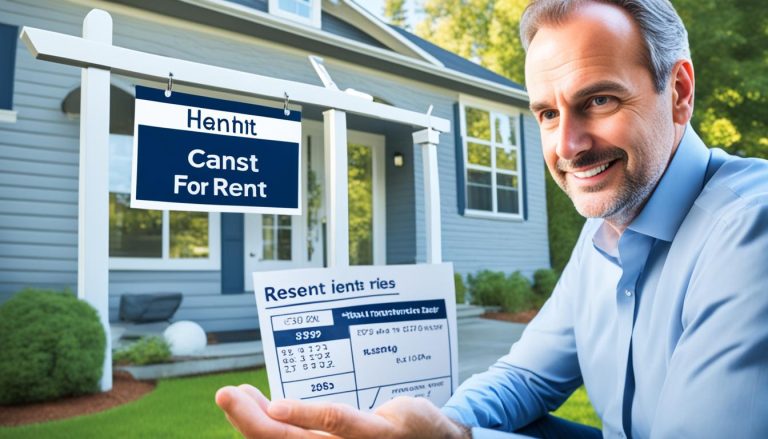If you’re in the market for a mortgage, you’ve probably come across the term “Standard Variable Rate” or SVR. But what exactly is an SVR mortgage and how does it differ from other types of mortgages? In this blog post, we’re going to explore everything you need to know about Standard Variable Rate mortgages. From how they work to their pros and cons, we’ll break it all down so you can make an informed decision when it comes to your mortgage options. Whether you’re a first-time buyer or looking to remortgage, understanding SVR mortgages is essential. Let’s dive in and demystify this common mortgage type
What is a Standard Variable Rate Mortgages
A standard variable rate mortgage, also known as an SVR mortgage, is a type of mortgage in the UK. The standard variable rate is the lender’s normal interest rate without any discounts or deals. It is a variable rate mortgage, which means that the interest rate can go up or down.
When you have a standard variable rate mortgage, your monthly payments can fluctuate as the interest rate changes. This means that if the interest rate goes up, your monthly payments could increase, and if it goes down, your payments could decrease. It’s important to keep in mind that the interest rate on an SVR mortgage is usually higher than other mortgage deals or products offered by lenders.
Now that you understand the basics of a standard variable rate mortgage, let’s dive deeper into how it works and whether it’s the right choice for you.
How Does a Standard Variable Rate Mortgage Work?
When a mortgage deal ends, borrowers are usually moved onto their lender’s standard variable rate. This means that the monthly payments on the mortgage can go up or down depending on the changes in the standard variable rate. Borrowers have the flexibility to overpay or pay off their mortgage early with no early repayment charges. However, it’s important to note that the interest rate on an SVR mortgage is usually higher than other mortgage deals or products offered by lenders.
With a standard variable rate mortgage, borrowers are subject to the fluctuation of the interest rate set by the lender. This rate is not fixed and can vary depending on market conditions and the lender’s internal policies. It’s essential for borrowers to be aware that their monthly mortgage payments can increase or decrease based on these changes, affecting their financial commitments.
Borrowers often choose a standard variable rate mortgage for its flexibility. Unlike fixed-rate mortgages, which offer a fixed interest rate for a specific period, SVR mortgages allow borrowers to make overpayments without incurring penalties. This feature is particularly beneficial for those who have the means to pay off their mortgage faster and reduce their overall interest payments.
While the flexibility of an SVR mortgage can be appealing, it’s essential for borrowers to factor in the potential downsides. The interest rate on a standard variable rate mortgage is typically higher than that of fixed or tracker rate mortgages offered by lenders. This means that borrowers could end up paying more each month compared to other mortgage deals available in the market.
Benefits of a Standard Variable Rate Mortgage:
- Flexibility: Borrowers have the freedom to make overpayments and pay off their mortgage early without penalties.
- No early repayment charges: Borrowers can choose to pay off their mortgage early without incurring additional fees.
Drawbacks of a Standard Variable Rate Mortgage:
- Higher interest rate: The interest rate on an SVR mortgage is generally higher than other mortgage products offered by lenders.
- Monthly payment fluctuations: Changes in the standard variable rate can lead to unpredictable changes in monthly mortgage payments.
It’s important for borrowers to carefully consider their financial situation, long-term goals, and preferences before choosing a standard variable rate mortgage. Comparing mortgage rates and consulting a mortgage advisor can help borrowers make an informed decision about the most suitable mortgage product for their needs.

| Pros | Cons |
|---|---|
| Flexibility to overpay | Higher interest rate |
| No early repayment charges | Monthly payment fluctuations |
Should You Stay on a Standard Variable Rate Mortgage?
When considering your mortgage options, it’s important to evaluate whether staying on a standard variable rate mortgage (SVR) is the right choice for you. Although an SVR mortgage offers more flexibility, it can also be more expensive compared to fixed or tracker deals.
One of the main factors to consider is the variable interest rate on mortgages. The interest rate on an SVR mortgage can change at any time, which means that your monthly payments can increase unexpectedly. This can significantly impact your monthly budget and financial stability.
To make an informed decision, it’s crucial to stay updated on the current mortgage variable rate in the UK. The standard variable mortgage rate can vary among lenders, and regularly checking the rates can help you determine whether you are still getting a competitive deal.
Another important question to ask is, “What is the standard variable mortgage rate today?” The answer to this question will help you understand the prevailing interest rates and whether they align with your financial goals.
Comparing mortgage rates is essential when deciding whether to stay on an SVR mortgage. By comparing different mortgage products and rates available in the UK market, you can identify potential cost savings and better options for your situation.
To further explore your options, it’s advisable to seek advice from a trusted mortgage advisor. They can provide personalized guidance based on your specific needs and financial circumstances, helping you make an informed decision about whether you should stay on a standard variable rate mortgage or explore other alternatives.

In summary, staying on a standard variable rate mortgage offers flexibility, but it can come at a higher cost. Monitoring the current mortgage variable rate in the UK and comparing mortgage rates are key steps in evaluating whether an SVR mortgage is the best choice for your financial situation. Seeking professional advice can also provide valuable insights to help you make an informed decision.
Pros and Cons of a Standard Variable Rate Mortgage
A standard variable rate mortgage, also known as an SVR mortgage, offers several advantages and disadvantages that borrowers should consider when deciding on their mortgage options.
Benefits of a Standard Variable Rate Mortgage
- Flexibility: One of the key benefits of an SVR mortgage is its flexibility. Borrowers have the freedom to make overpayments or pay off their mortgage early without incurring any penalties. This can be especially advantageous for those who expect changes in their financial situation in the future.
- Lower Initial Fees: Another advantage of SVR mortgages is that they often come with lower upfront fees compared to other mortgage deals. This can help reduce the initial costs of buying a home, making it more affordable for borrowers at the beginning of their mortgage journey.
- No Tie-Ins: Unlike some other mortgage products, SVR mortgages do not typically have tie-in periods. This means that borrowers can switch to a different mortgage deal or lender at any time without facing any early repayment charges.
Drawbacks of a Standard Variable Rate Mortgage
- Potentially Higher Costs: SVR mortgages are generally more expensive than fixed-rate or tracker mortgages. The interest rates on SVR mortgages can fluctuate, leading to higher monthly payments if rates rise. Borrowers should be prepared for the possibility of increased costs over time.
- Lack of Rate Guarantee: Unlike fixed-rate mortgages, SVR mortgages do not provide a rate guarantee. This means that borrowers have less certainty about their future mortgage payments. The unpredictability of interest rates can make it challenging to budget and plan for long-term financial commitments.
When considering a standard variable rate mortgage, it’s essential for borrowers to carefully weigh the pros and cons. Comparing mortgage options, including fixed-rate mortgages and tracker mortgages, can help borrowers find the best mortgage deal that suits their financial goals and circumstances.

| Pros | Cons |
|---|---|
| Flexibility to overpay or pay off early | Potentially higher costs compared to other mortgage deals |
| Lower upfront fees | Uncertainty about future interest rate changes |
| No tie-ins or early repayment charges |
Conclusion
In conclusion, a standard variable rate mortgage offers borrowers in the UK the flexibility to manage their mortgage payments according to their financial situation. With the ability to overpay without penalties, homeowners can potentially pay off their mortgage sooner and reduce interest costs. However, it’s important to note that standard variable rate mortgages can be more expensive than other mortgage deals available in the market.
When deciding whether to choose a standard variable rate mortgage or explore other options, borrowers should carefully consider their financial goals and current market conditions. Comparing mortgage rates and understanding the potential risks and benefits can help them make an informed decision.
For those seeking more stable repayment plans, fixed rate mortgages or tracker mortgages may provide more certainty in their monthly payments. However, for those who value flexibility in their mortgage and are prepared for potential interest rate fluctuations, a standard variable rate mortgage could be a viable option.
Ultimately, it is recommended that borrowers seek professional mortgage advice to evaluate their specific circumstances and requirements before deciding on the best mortgage deal for their individual needs. By staying informed and exploring the various flexible mortgage options available, borrowers can make confident choices that align with their financial goals.






